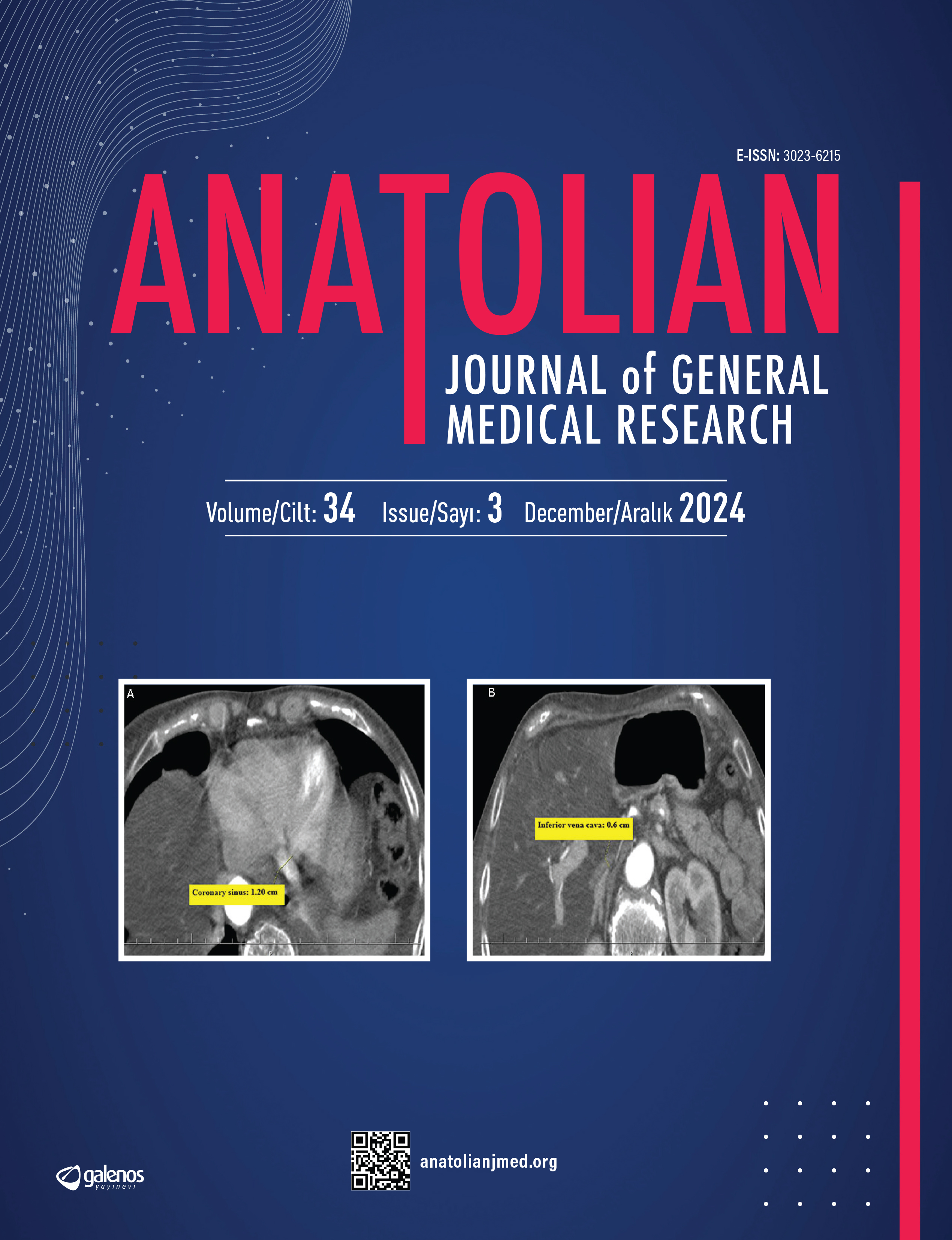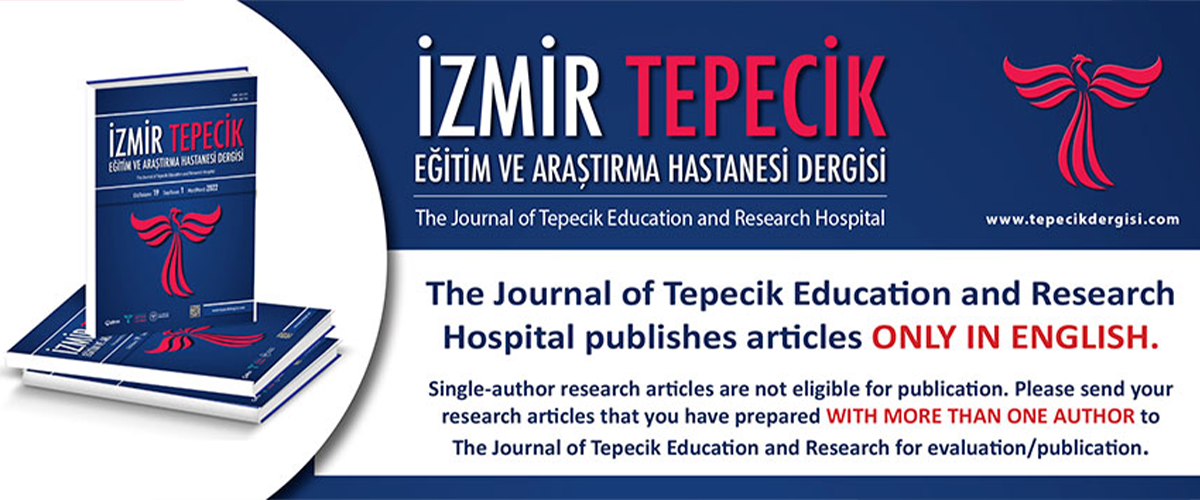








Evaluation of Turkish Validity and Reliability of the Depression Literacy Qestionnaire (D-LIT-Qestionnaire)
Saniye Göktaş1, Çınar Yenilmez2, Selma Metintaş11Eskisehir Osmangazi University, Faculty of Medicine, Department of Public Health, Eskişehir2Eskisehir Osmangazi University, Faculty of Medicine, Department of Mental Health And Diseases, Eskisehir
Objective: The aim of the study was to evaluate the validity and reliability of the Turkish version of Depression Literacy Questionnairre (D-LIT-Questionnaire).
Methods: The study is a methodological research conducted with Eskişehir Osmangazi University students. D-LIT-Questionnaire was developed by Griffiths et al. The final shape of the D-LIT-Questionnaire was created by the translation-back translation method. Turkey’s Health Literacy Scale-32 (THLS-32) was used for criterion validity. A questionnaire was applied to 40 medical faculty students in two weeks intervals to evaluate the discriminant validity and test-retest reliability of the scale. Statistical Package for the Social Sciences (version 15.0) and Lisrel 9.3 (Student’s version) were used to analyze the data. Exploratory factor analysis (EFA), confirmatory factor analysis (CFA), Spearman correlation analysis were performed to evaluate the validity of the D-LIT-Questionnaire. Internal consistency and test-retest correlation was used to evaluate the reliability of the scale. Statistical significance was accepted as p<0.05.
Results: The mean of age of 204 students in the study group was 20.2±2.3 years. The Kaiser-Mayer-Olkin value of the scale was 0.69 and the Barlett test result was p<0.001 and the data were found to be suitable for factor analysis. It was observed that factor loads in EFA were above 0.30. The fit indices of the scale in CFA were found at acceptable levels. The median score of the students of Faculty of Medicine [15 (0-19)] was higher than the students of Faculty of Arts and Sciences [9 (0-16)] (p<0.001). The D-LIT-Questionnaire and THLS-32 were found to be positively correlated (r=0.199, p=0.046). The Cronbach’s alpha of the D-LIT-Questionnaire was calculated as 0.71. There was a strong positive correlation between the test-retest scores of the D-LIT-Questionnaire (r=0.720, p<0.001).
Conclusion: It is observed that the D-LIT-Questionnaire is valid and reliable for measuring D-LIT-Questionnaire in individuals aged 18 and over.
Depresyon Okuryazarlığı Ölçeği’nin (DOY-Ölçeği) Türkçe Geçerlilik ve Güvenilirliğinin Değerlendirilmesi
Saniye Göktaş1, Çınar Yenilmez2, Selma Metintaş11Eskişehir Osmangazi Üniversitesi Tıp Fakültesi, Halk Sağlığı Anabilim Dalı, Eskişehir, Türkiye2Eskişehir Osmangazi Üniversitesi Tıp Fakültesi, Ruh Sağlığı ve Hastalıkları Anabilim Dalı, Eskişehir, Türkiye
Amaç: Araştırmanın amacı, Depresyon Okuryazarlığı Ölçeği’nin (DOY-Ölçeği) Türkçe geçerlilik ve güvenilirliğinin değerlendirilmesiydi.
Yöntem: Çalışma, Eskişehir Osmangazi Üniversitesi öğrencileri ile yapılan metodolojik tipte bir araştırmadır. DOY-Ölçeği Griffiths ve ark. tarafından geliştirilmiştir. Çeviri-geri çeviri yöntemiyle DOY-Ölçeği’nin son şekli oluşturuldu. Eş değer ölçüt geçerliliği için, Türkiye Sağlık Okuryazarlığı Ölçeği-32 (TSOY-32) kullanıldı. Ölçeğin, ayırt edici geçerliliği ve test-tekrar test güvenilirliğini değerlendirmek için 40 tıp fakültesi öğrencisine iki hafta arayla anket uygulaması yapıldı. Verilerin analizinde Statistical Package for the Social Sciences (versiyon 15.0) ve Lisrel 9.3 (Student’s) kullanıldı. DOY-Ölçeği’nin geçerliliğini değerlendirmek için açımlayıcı faktör analizi (AFA), doğrulayıcı faktör analizi (DFA), Spearman korelasyon analizi yapıldı. Ölçeğin güvenilirliğini değerlendirmek için, iç tutarlılık ve test-tekrar test korelasyonu kullanıldı. İstatiksel anlamlılık düzeyi p<0,05 kabul edildi.
Bulgular: Çalışma grubundaki 204 kişinin, yaş ortalamaları 20,2±2,3 yıl idi. DOY-Ölçeği’nin Kaiser-Mayer-Olkin değeri 0,69, Barlett testi p<0,001 bulundu ve verilerin faktör analizine uygun olduğu görüldü. AFA’da faktör yüklerinin 0,30’un üstünde olduğu görüldü. DFA’da ölçeğin uyum indeksleri kabul edilebilir düzeylerde bulundu. Tıp fakültesi öğrencilerinde [15 (0-19)] puan ortancası, fen edebiyat fakültesi öğrencilerine [9 (0-16)] göre daha yüksekti (p<0,001). DOYÖlçeği ve TSOY-32’nin pozitif yönde korelasyon gösterdiği saptandı (r=0,199, p=0,046). DOY-Ölçeği’nin Cronbach’s alfası 0,71 olarak hesaplandı. DOY-Ölçeği’nin, test-tekrar test puanları arasında kuvvetli düzeyde pozitif korelasyon saptandı (r=0,720, p<0,001).
Sonuç: DOY-Ölçeği’nin 18 yaş ve üzerindeki bireylerde DOY-Ölçeği’nin geçerli ve güvenilir olduğu görülmektedir.
Manuscript Language: Turkish
(741 downloaded)




